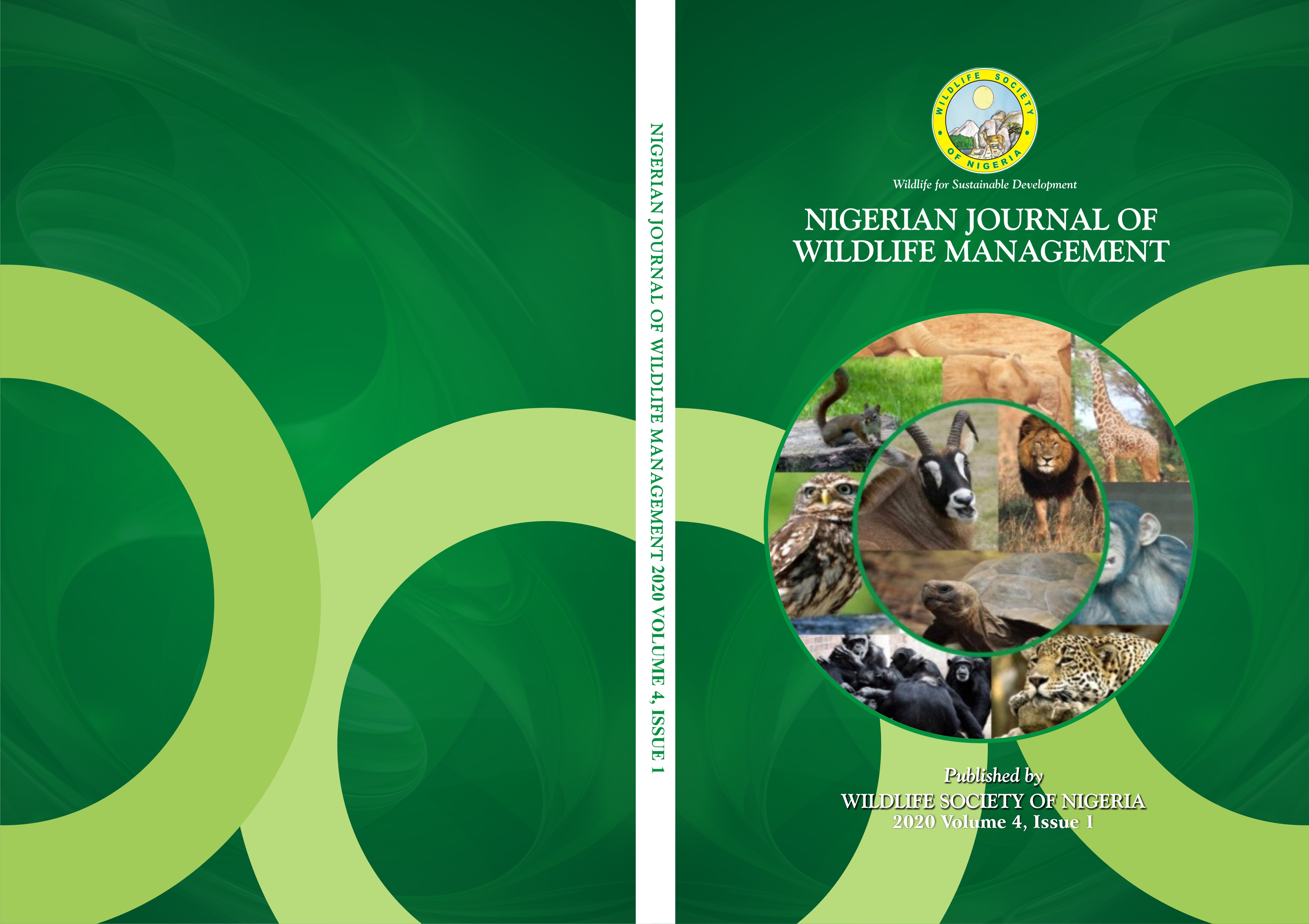Contributions of Bushmeat Trade to Livelihoods in Maiduguri Borno State, Nigeria
Keywords:
Enterprise, income, policies, sustainability, tradersAbstract
Bushmeat trade (BT) is an important enterprise in many parts of the world, as it is associated with
alleviating livelihood challenges. This study examined the contributions of BT to the livelihood of
bushmeat traders in Maiduguri Bushmeat Market, Borno State. Structured questionnaire was used to
obtain information on income from bushmeat trade. Fifty (50) bushmeat traders were sampled in July
2017. This study revealed that bushmeat trade in the study area was male dominated (84%) and that 82%
of respondents were between 21-50 years. BT was the primary source of income among 57% respondents.
Most respondents (38%) earned monthly income between ₦40,000.00 and ₦49,999.00 from BT. It is
recommended that policies which will encourage sustainability of trade and captive breeding of bushmeat
species be formulated to enhance the livelihood contributions of this important commodity without its
negative effects on wildlife populations.

